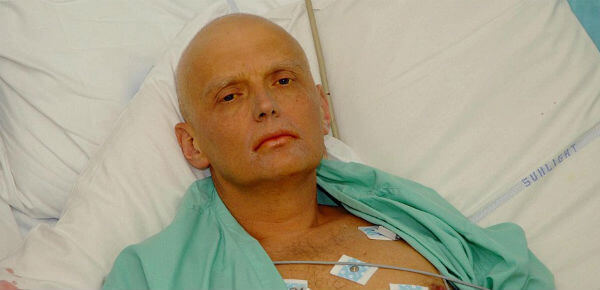The Guardian reports: The former Russian spy Alexander Litvinenko was probably murdered on the personal orders of Vladimir Putin, the UK public inquiry into his death has found.
Litvinenko, who died from radioactive poisoning in a London hospital in November 2006, was killed by two Russian agents, Andrei Lugovoi and Dmitry Kovtun, the inquiry report said. There was a “strong probability” they were acting on behalf of the Russian FSB secret service, the report added.
Sir Robert Owen, the inquiry chair, said that taken as a whole the open evidence that had been heard in court amounted to a “strong circumstantial case” that the Russian state was behind the assassination.
But when he took into account all the evidence available to him, including a “considerable quantity” of secret intelligence that was not aired in open court, he found “that the FSB operation to kill Mr Litvinenko was probably approved by [Nikolai] Patrushev [head of the security service in 2006] and also by President Putin”.
Marina Litvinenko, Alexander’s widow, welcomed the report’s “damning finding” and called for the UK to impose sanctions on Russia, in a statement read outside the Royal Courts of Justice, where the inquiry took place. But she claimed she had been given indications that the UK would do nothing. [Continue reading…]

Luke Harding writes: The Soviet Union had a long tradition of bumping off its enemies. They included Leon Trotsky (ice-pick in the head), Ukrainian nationalists (poisons, exploding cakes) and the Bulgarian dissident Georgi Markov (ricin pellet fired from an umbrella, on London’s Waterloo Bridge). There was a spectrum. It went from killings that were demonstrative, to those where the KGB’s fingerprints were nowhere to be found, however hard you looked. Such murders were justified by what you might call Leninist ethics: they were necessary to defend the Bolshevik revolution, a noble experiment.
Under Boris Yeltsin these exotic killings mostly stopped. Moscow’s secret poisons lab, set up by Lenin in 1917, was mothballed. After 2000 though, with Putin in the Kremlin, such Soviet-style operations quietly resumed. Critics of Russia’s new president had an uncanny habit of ending up … well, dead. In power, Putin steered the country in an increasingly authoritarian direction, snuffing out most sources of opposition and dissent. The president’s fellow KGB comrades, once subordinate to the Communist party, were now in sole charge.
The murders of journalists and human rights activists could not be explained in terms of protecting socialism. Rather, the state was now synonymous with something else: the personal financial interests of Putin and his friends.
As an FSB officer in the 1990s, Litvinenko had been shocked to discover how thoroughly organised crime had penetrated Russia’s security organs. In his view, criminal ideology had replaced communist ideology. He was the first to describe Putin’s Russia as a mafia state, in which the roles of government, organised crime and the spy agencies had grown indistinguishable. [Continue reading…]

